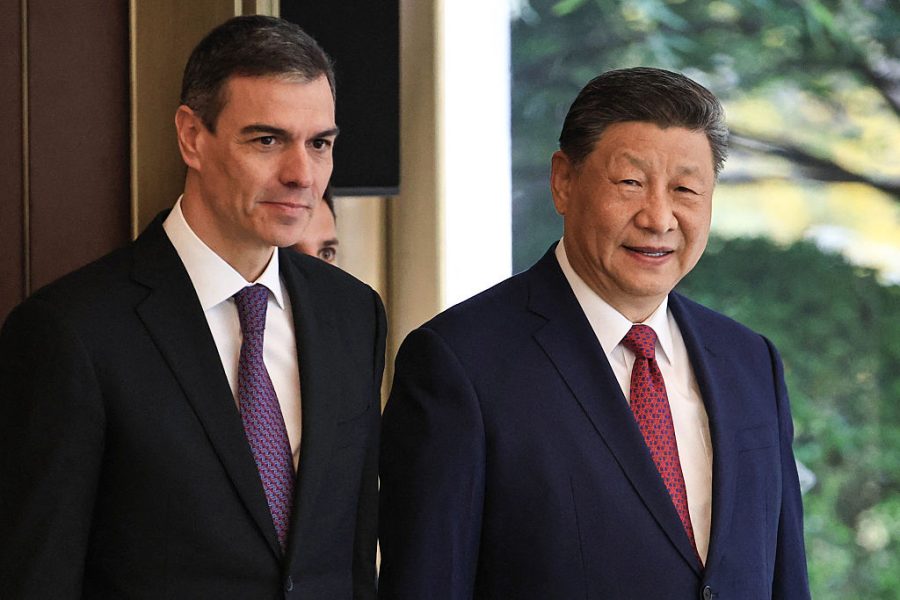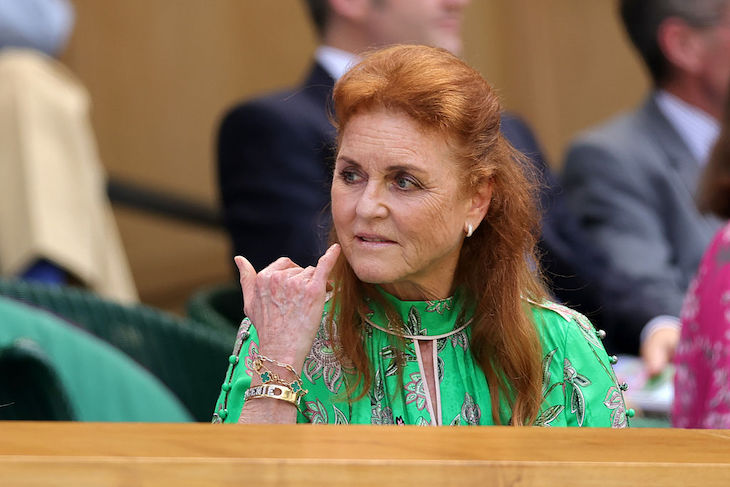Since Trump’s inauguration in January, not a day has gone by when supporters of a liberal international order have not sunk their heads deep into their hands. The global trade war that has erupted between the US and the rest of the world is just the latest episode in the American President’s mission to overturn the old order (despite the unexpected 90-day pause announced on Wednesday for everyone but China). If this was not disturbing enough, liberal internationalists also need to contend with what will replace it. What rules and norms will prevail, or rather whose?
Disconcertingly, some Europeans appear to be buying the charm offensive
The People’s Republic of China is a prime contender. Beijing, with Xi Jinping at the helm, has made its grand aspirations clear with its benign-sounding Global Development Initiative, Global Security Initiative, and Global Civilization Initiative. All proposed in the past five years by China’s president for life, these initiatives seek to reshape the global order in Beijing’s image – concepts such as democracy and universal human rights will be discarded as the world is made safe for autocracies.
You cannot blame the People’s Republic for trying to take advantage of America’s mishaps and peel away their allies, as their Premier, Li Qiang, did during a call with European Commission President Ursula von der Leyen at the beginning of this week. According to China’s official state news agency Xinhua, Qiang suggested, among other things, that as ‘strong advocates of economic globalisation and trade liberalisation’, both China and the European Union should ‘jointly safeguard free and open trade and investment, and maintain the stable and smooth operation of global industrial and supply chains’.
Disconcertingly, some Europeans appear to be buying the charm offensive. Spain’s Prime Minister, Pedro Sánchez met with Xi today. Ahead of his trip, Madrid, in response to the Trump tariffs, called for greater alignment between the European Union and China. Sánchez may be an outlier for now, but the debate over whether to get cosier with Beijing has already begun – something which was unthinkable a year ago.
Leaning towards Beijing is folly. For one thing, the Trumpifcation of American foreign policy may not be as permanent as everyone says it is. Yes, Trump’s grip on the Republican party appears unbreakable, but let’s see how that looks after a few more economic shocks and the midterm elections next year. And, of course, the Democrats may pull themselves together and take back the White House. The point is that the United States could have a very different president in four years’ time.
The second point is, if you worry about Trump’s illiberalism and bully-boy tactics, wait until you hear about the Chinese Communist party. Qiang has some cheek pointing out as he did Washington’s ‘protectionism and economic bullying’ to von der Leyen. Surely, the world must remember Beijing’s punitive actions against Australia in 2020, when it brought in trade tariffs on Australian goods after its government called for an inquiry into the origins of Covid-19.
This is not an isolated incident. The Taiwanese people have been routinely punished with trade restrictions and sanctions because they dare to elect leaders that China’s communist rulers do not like. Nor is it a new issue: back in 2010, Beijing placed restrictions on Norwegian salmon following the Nobel Committee’s decision to award its peace prize to the Chinese human rights activist Liu Xiaobo.
It is not only on the economic front where the People’s Republic is trying to woo the EU. At the Munich Security Conference earlier this year, Foreign Minister Wang Yi presented himself as a peacemaker. There he stressed China’s willingness to work with Europe to ‘steer the world to a bright future of peace’.
Meanwhile, we know that Beijing has given diplomatic and economic succour to Vladimir Putin’s invasion of Ukraine. Whether China is providing ‘lethal aid’ remains contested; what is clear, however, is that Chinese-manufactured goods, with ‘important military uses’, have flowed into Russia during the war. ‘Those [components] are being used’, the United States’ then secretary of state Anthony Blinken warned last year, ‘to help Russia on what’s an extraordinary crash course effort to make more munitions, tanks, armoured vehicles, missiles.’
If fuelling a conflict on European soil was not egregious enough, it should not be forgotten that China looks increasingly like it might start its own war in East Asia. This is precisely what the People’s Liberation Army has been practising for. Only last week, Chinese military aircraft and naval exercises encircled Taiwan in an attempt to simulate a blockade. The drills followed a series of similar exercises over the past few years, making Xi’s calls for unification far, far more serious than anything Trump has said about Canada becoming the 51st state of America (in fact, the two are hardly comparable).
At Munich, Wang also told the Europeans gathered that ‘respect for all countries’ sovereignty and territorial integrity should mean support for China’s complete reunification’. By this, he of course was referring to support for annexing Taiwan (a move which could, incidentally, cost the global economy $10 trillion (£7 trillion)). But where was the outrage from the media and Western politicians? Used up, no doubt, raging against US Vice President J.D. Vance’s poor remarks.
If Europeans want a world where the strong are constrained from doing what they like and where global prosperity is not jeopardised by one leader’s nationalistic aspirations, they would be foolish to turn away from the transatlantic alliance and look East. America may change, but under the Chinese Communist party, China will not – and Beijing’s goals are far from benign. They will continue to bully others to achieve them long after Trump vacates the White House.







Comments